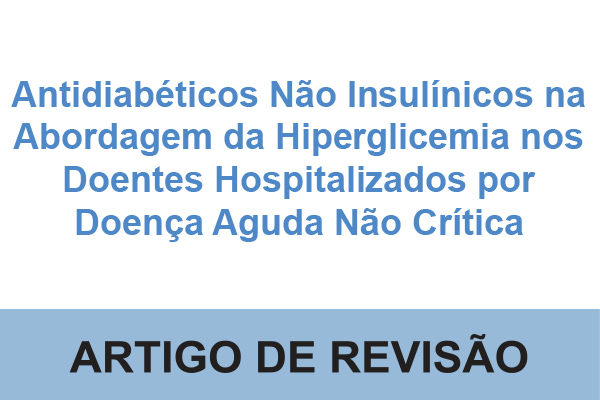SOCIAL MEDIA
Portuguese Medical Association's Scientific Journal

Hyperglycaemia affects more than 30% of adults hospitalized for non-critical illness and is associated with an increased risk of adverse clinical outcomes. Insulin therapy is widely used for its safety and efficacy. However, given the growing availability of new drugs and new classes of antidiabetic agents with benefits beyond glycaemic control, challenges arise regarding their use in the hospital setting. This article aims to review and summarize the most recently available evidence and recommendations on the role of non-insulin antidiabetic agents in the management of hyperglycaemia in hospitalized patients. Insulin therapy remains the method of choice. Dipeptidyl peptidase 4 inhibitors can be considered in mild to moderate hyperglycaemia. Glucagon-like peptide 1 receptor agonists have recently shown promising results, with high efficacy in glycaemic control and low risk of hypoglycaemia. There are concerns regarding the increased risk of acidosis with metformin use, especially in cases of acute illness, although there is no evidence to support its suspension in selected patients with relative clinical stability. Sodium-glucose cotransporter-2 inhibitors should be discontinued in clinical situations that may predispose to ketoacidosis, including episodes of acute illness. The hospital use of sulfonylureas and thiazolidinediones is not advised.